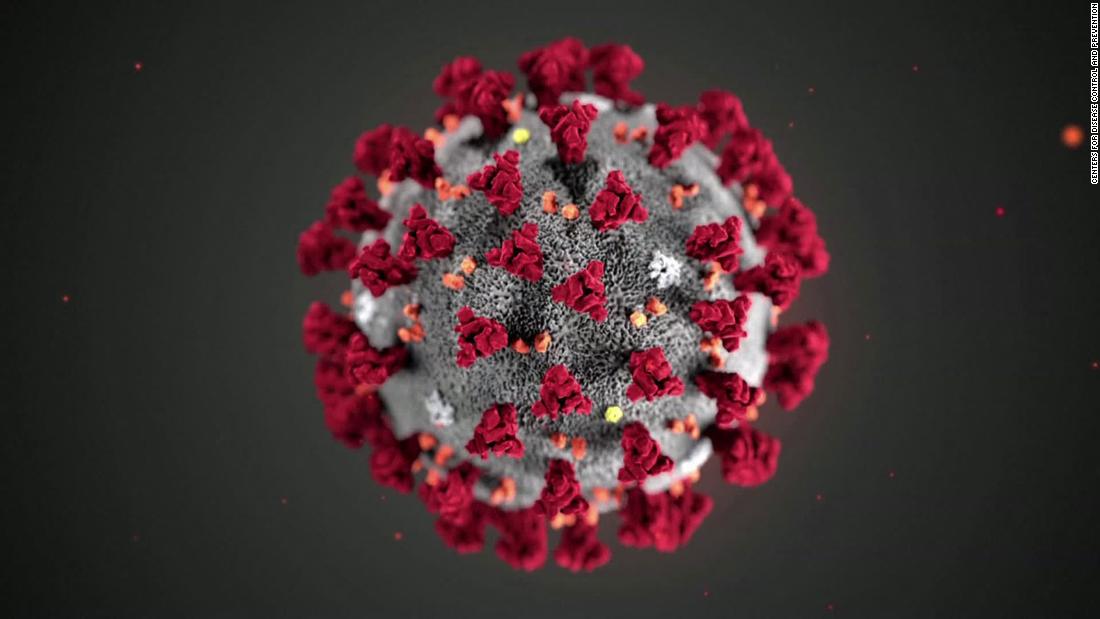
Although the B.1.1.7 variant first identified in the UK is currently at a relatively low frequency in the United States, the paper says it's doubling every week and a half, similar to what was observed in other countries. The report estimates this variant is 35-45% more transmissible than strains that appeared earlier in the United States, and it's doubling about every 10 days in the country.
Last month, the US Centers for Disease Control and Prevention modeling predicted the B.1.1.7 variant could become the predominant strain in the United States by March. It estimates the virus is about 50% more transmissible.
"Our study shows that the U.S. is on a similar trajectory as other countries where B.1.1.7 rapidly became the dominant SARS-CoV-2 variant, requiring immediate and decisive action to minimize COVID-19 morbidity and mortality," researchers wrote in the study's preprint, which has not yet been peer-reviewed or published.
In addition to groups of cases in California, Florida and Georgia, many B.1.1.7 cases in the United States did not report recent international travel, the report said, suggesting "significant community transmission of the B.1.1.7 variant is already ongoing across the U.S."
The new study, posted Sunday on the preprint server MedRxiv, is a collaboration of researchers from several institutions and the company Helix, which is one of the commercial, academic and public health labs that shares information on variants with the CDC.
US labs are still sequencing only a small subset of coronavirus samples, the paper said, so it's not clear what variants are circulating in the country. Without "decisive and immediate public health action," new, more transmissible variants "will likely have devastating consequences to COVID-19 mortality and morbidity in the U.S. in a few months," the researchers warn.
Helix President Dr. James Lu told CNN last week the company had been tracking evidence that cases of B.1.1.7 are on the rise, and not just a product of increased genetic sequencing across the country.
"The rate of growth here in Florida and Southern California looks a lot like the type of growth that we have seen previously in the UK and Denmark ... where B.1.1.7 became the predominant variant strain pretty quickly," Lu said.
It's unclear whether the pace of vaccination in the United States will prevent the strain from gaining a foothold in places where it's not already circulating, he added.
"We're in a race between the vaccine and the new strains," Lu said.
Dr. Anthony Fauci last week suggested the US isn't vaccinating people fast enough to stay ahead of new variants. That could blunt the vaccine's efforts to bring cases down, he told CNN. "If the variants and the mutations come, and start becoming dominant, then that's going to obviate some of the effects of the vaccine," he said.
More than 610 cases of the B.1.1.7 variant have been found in 33 states, according to CDC. Most are in Florida and California. The first US case was announced December 29, but the earliest known cases stretch back earlier. Analysis in the new study suggests the B.1.1.7 variant arrived in the United States as early as late November 2020.
The strain has also been found in at least 80 countries and territories around the globe, the World Health Organization said last week.
The United States has also tallied five cases in two states of the B.1.351 variant first identified in South Africa, and two cases in one state of the P.1 variant first identified in Brazil.
https://ift.tt/36QBElG
Health
Bagikan Berita Ini














0 Response to "More contagious coronavirus variant identified in UK is spreading rapidly throughout the US, study says - CNN"
Post a Comment